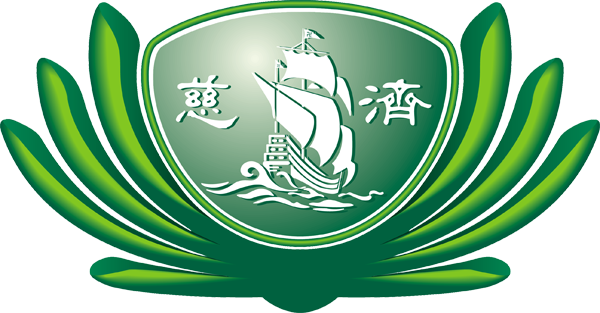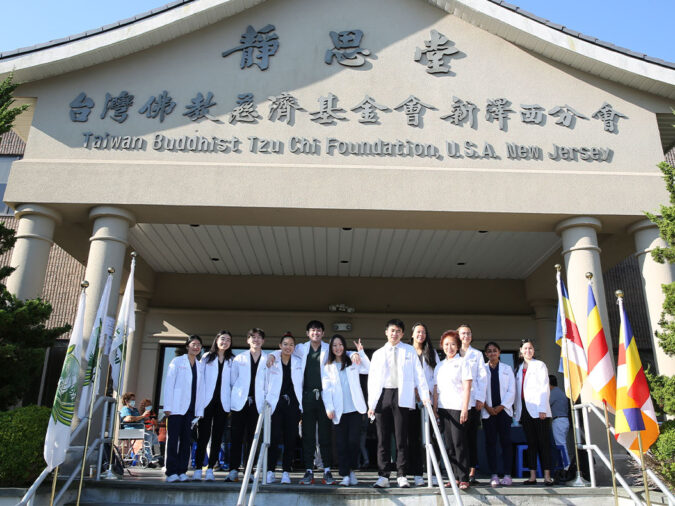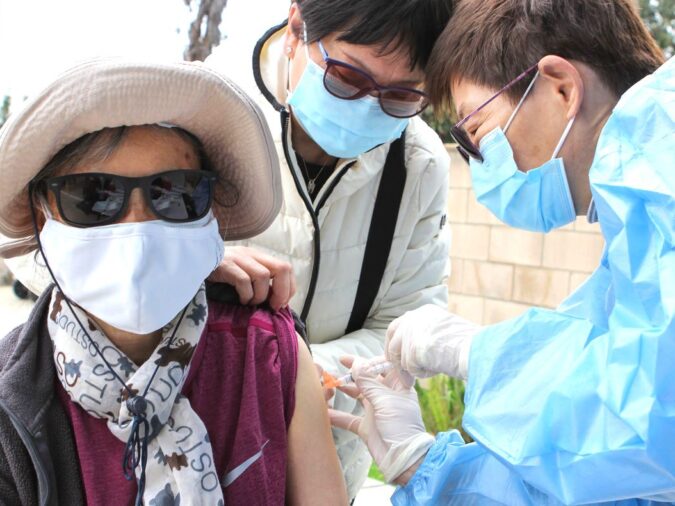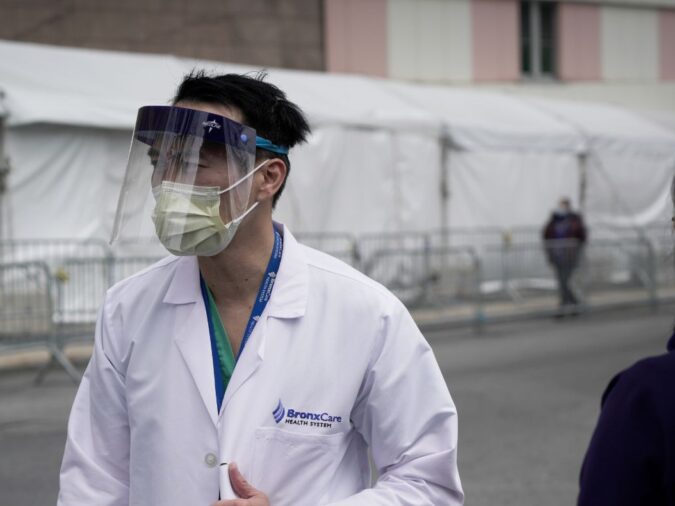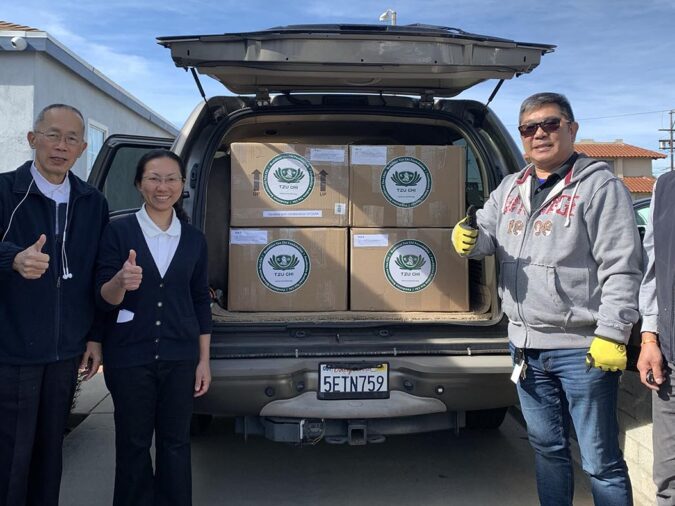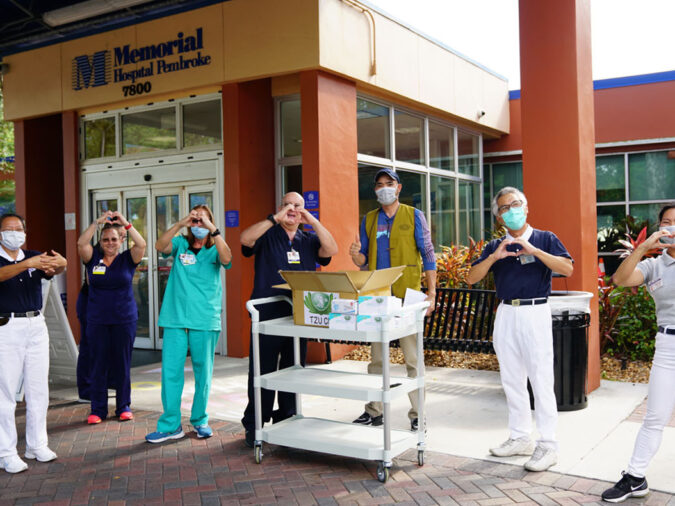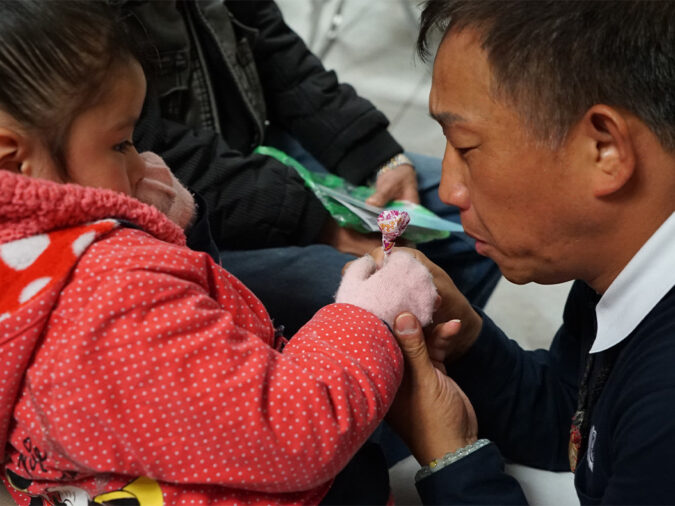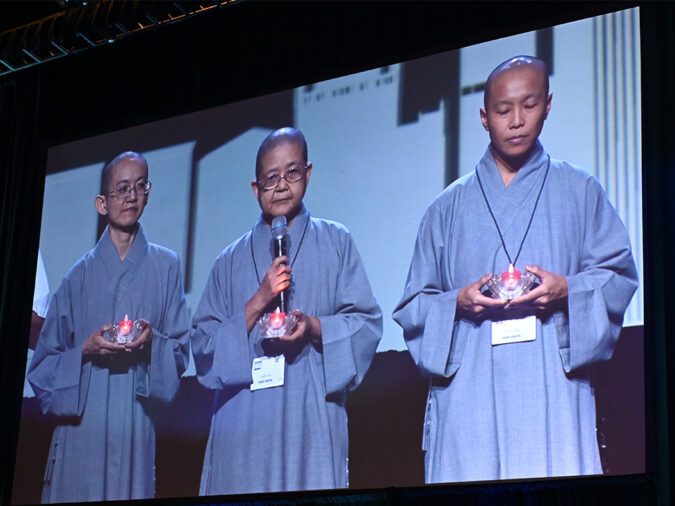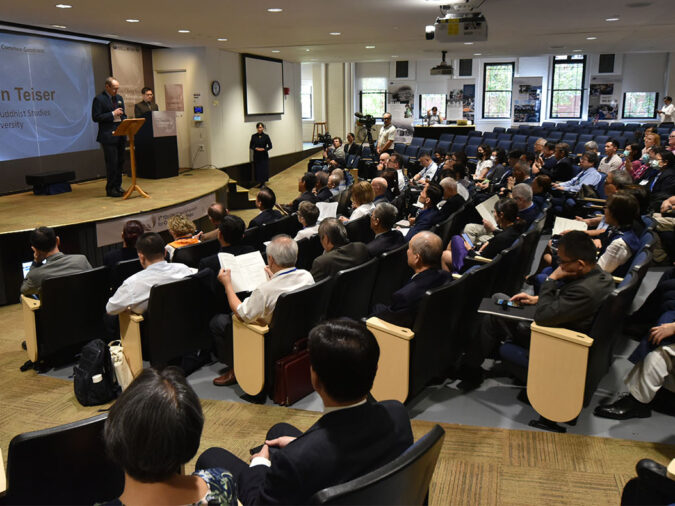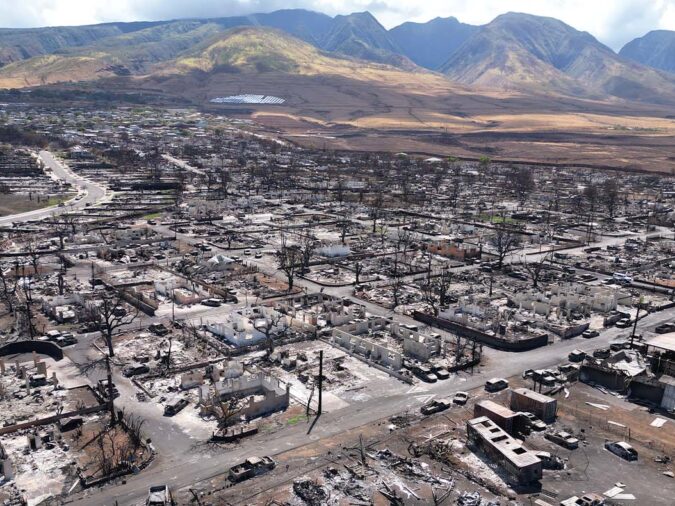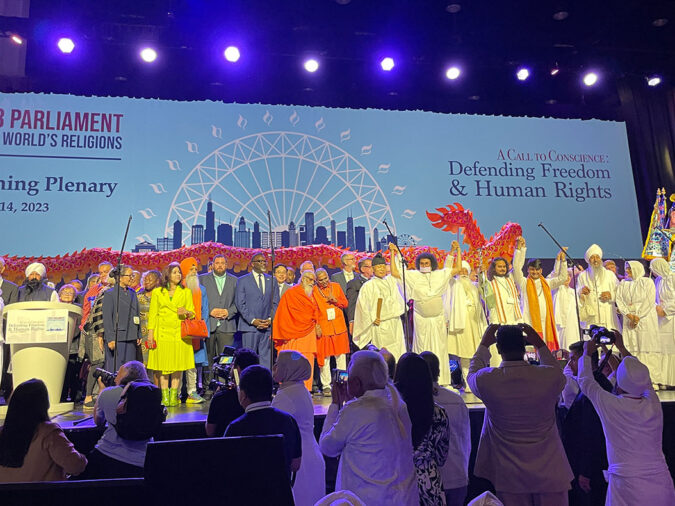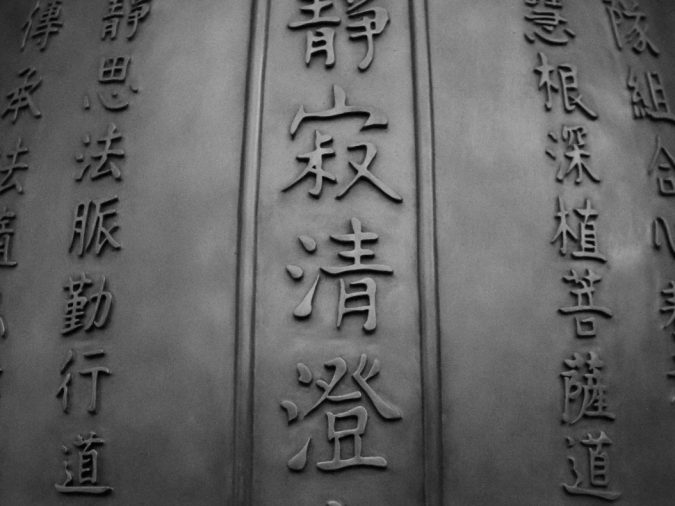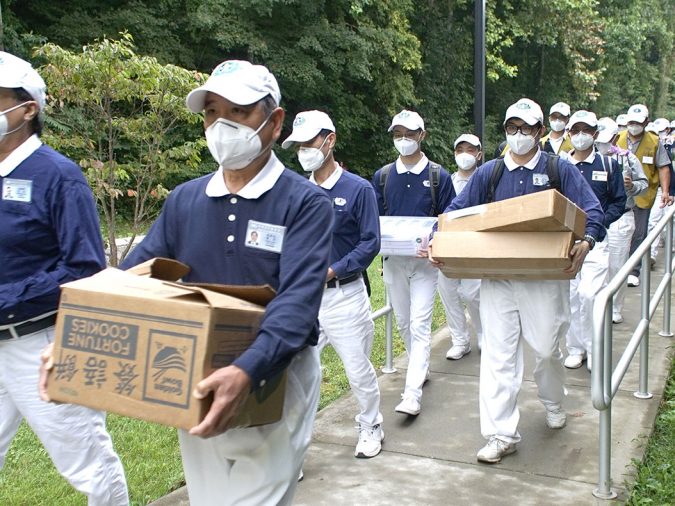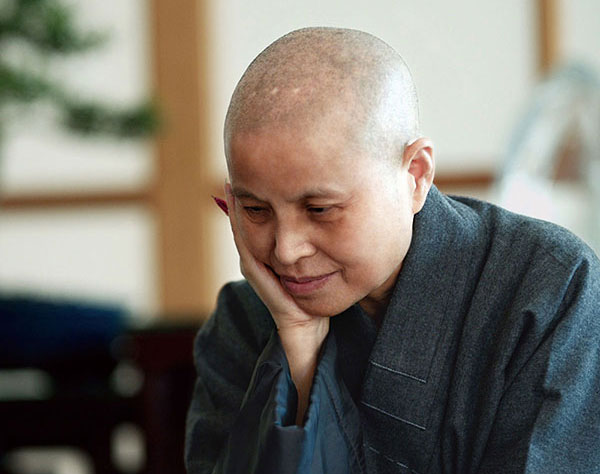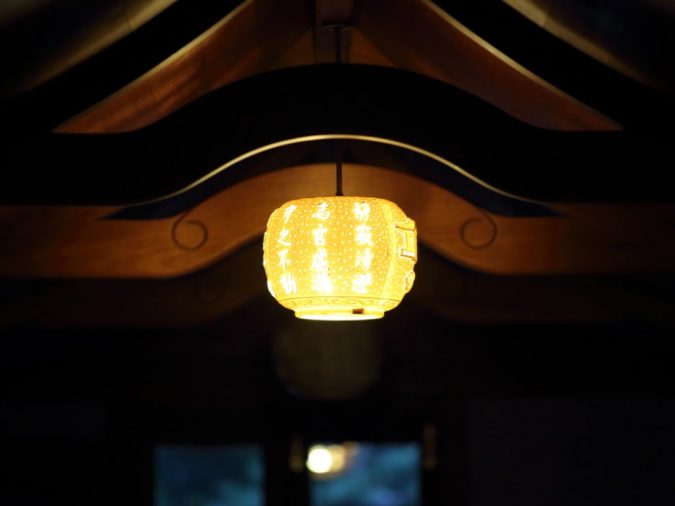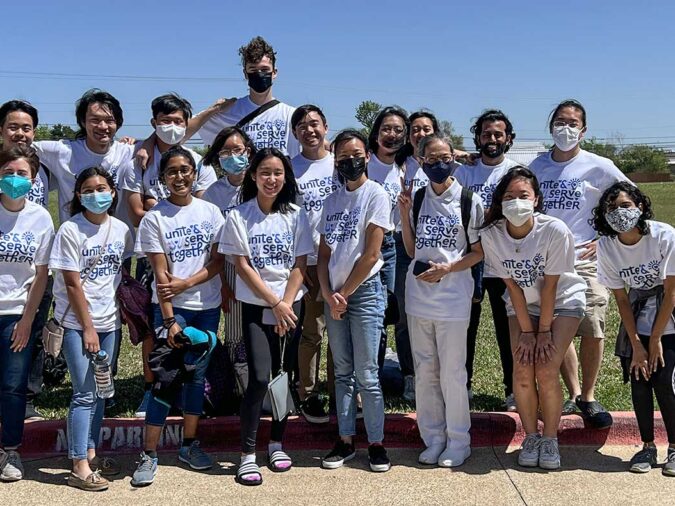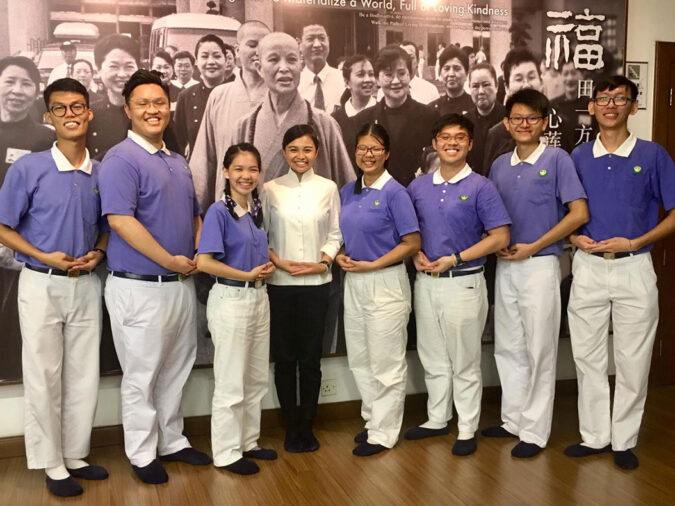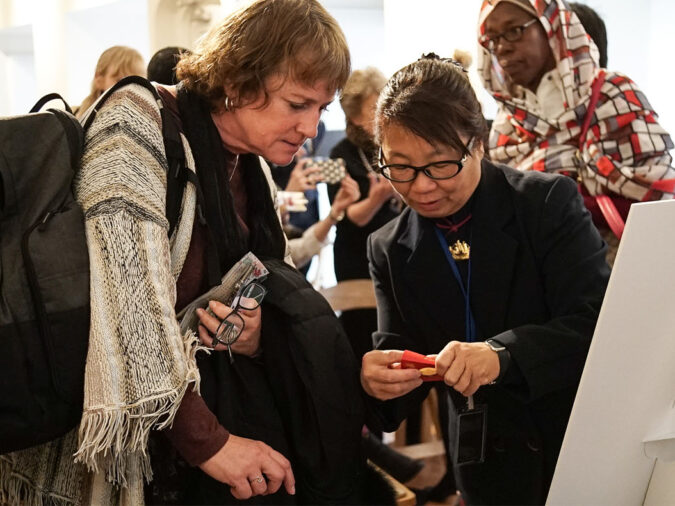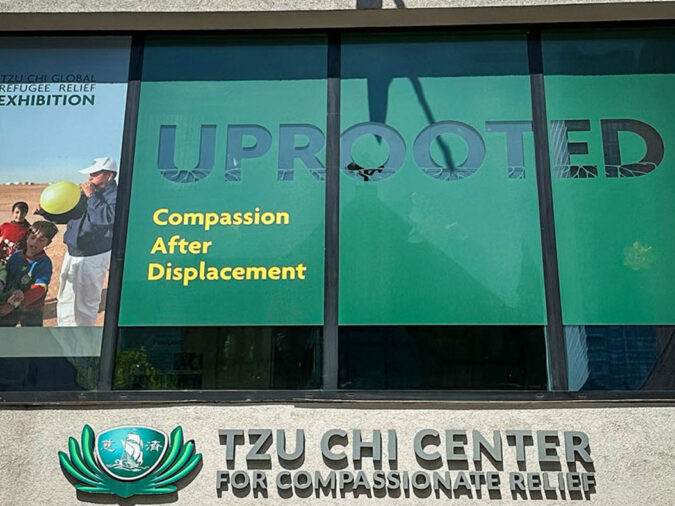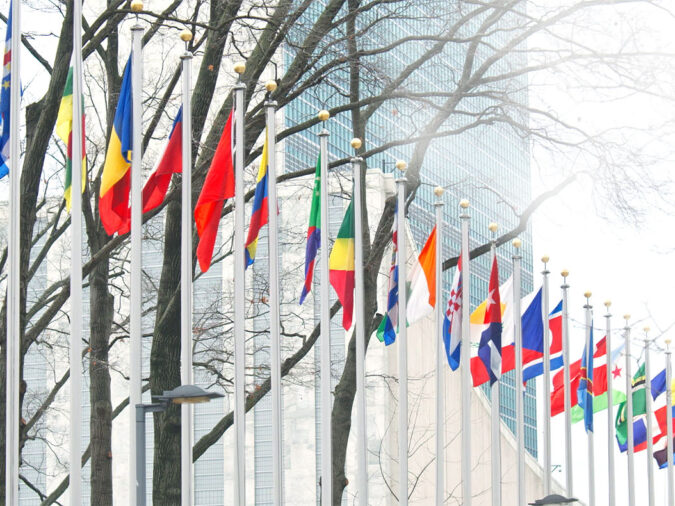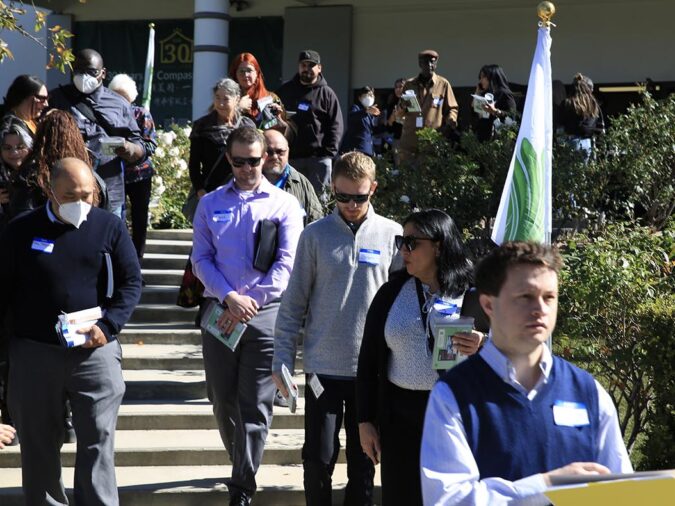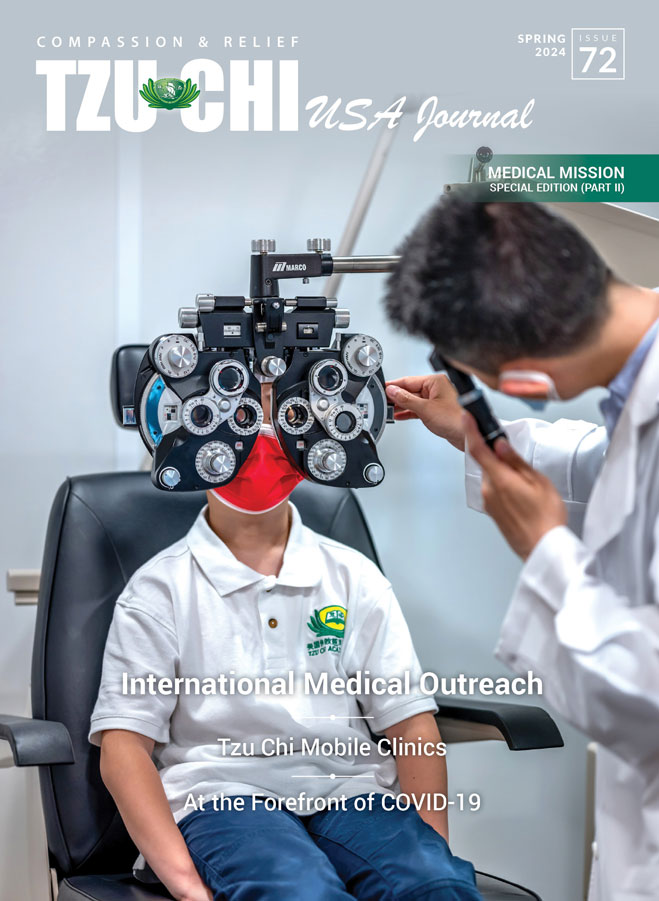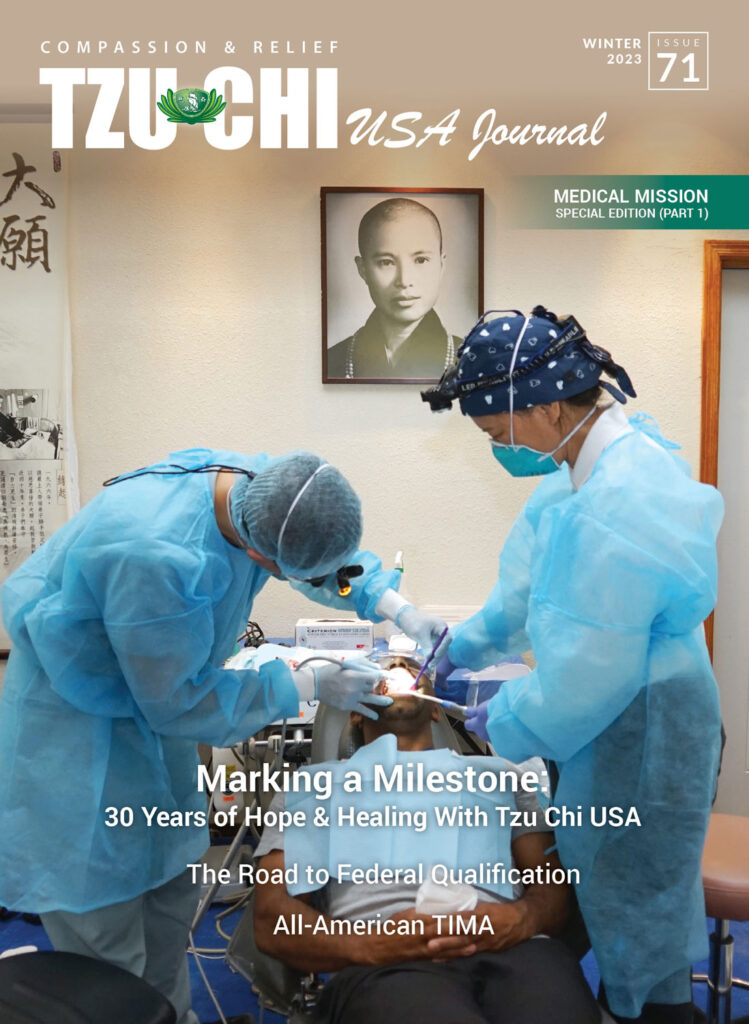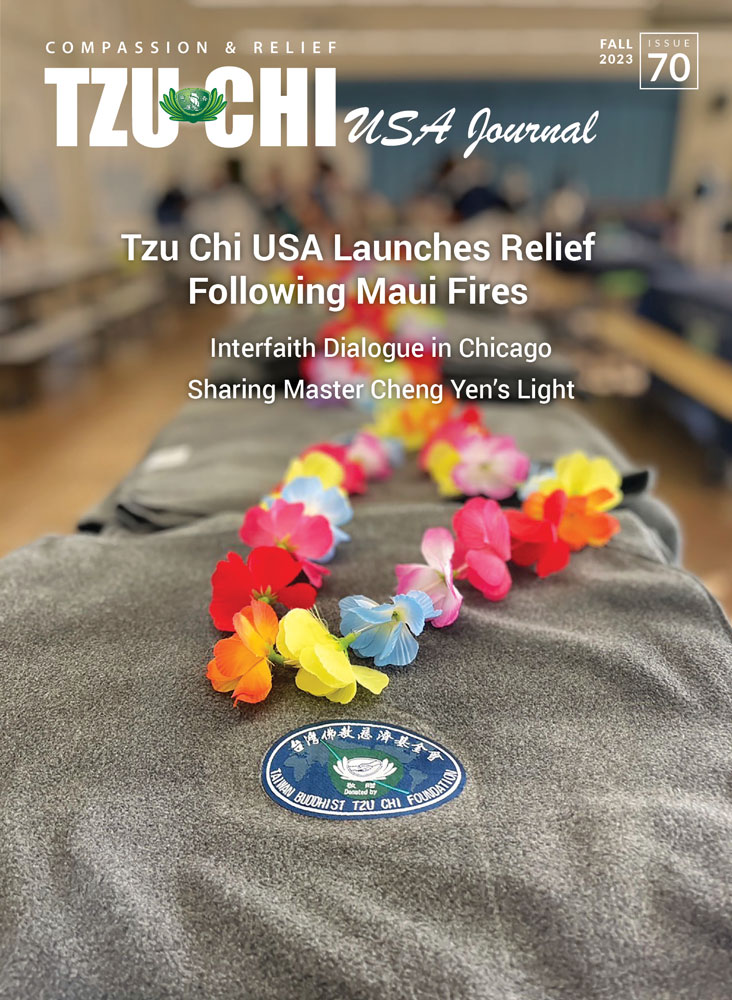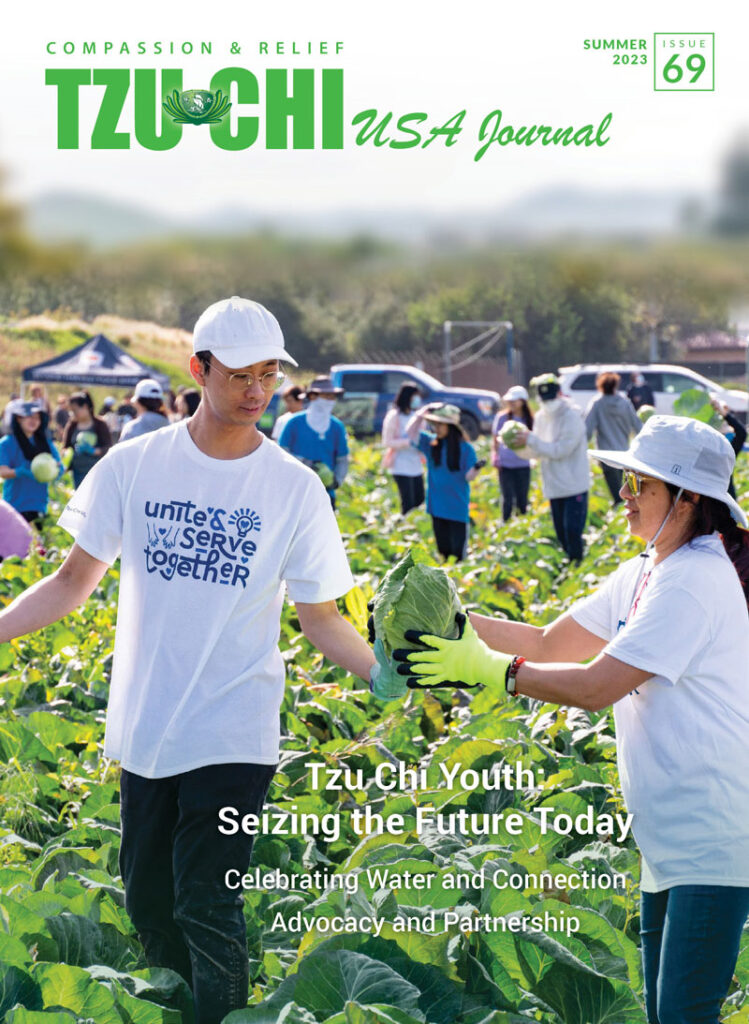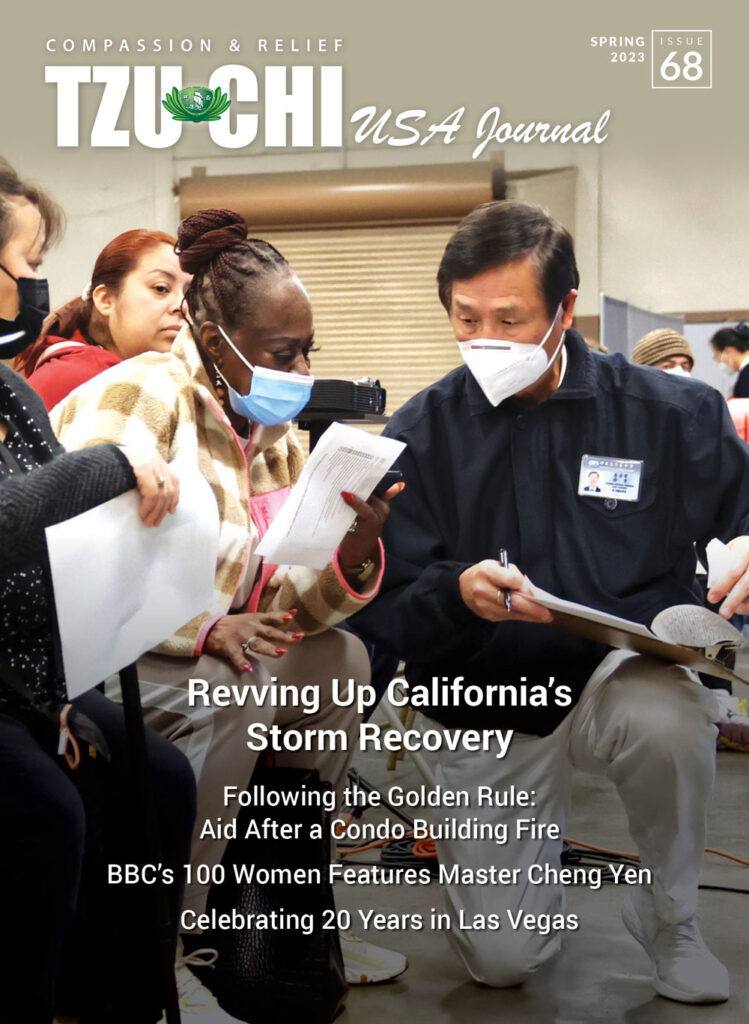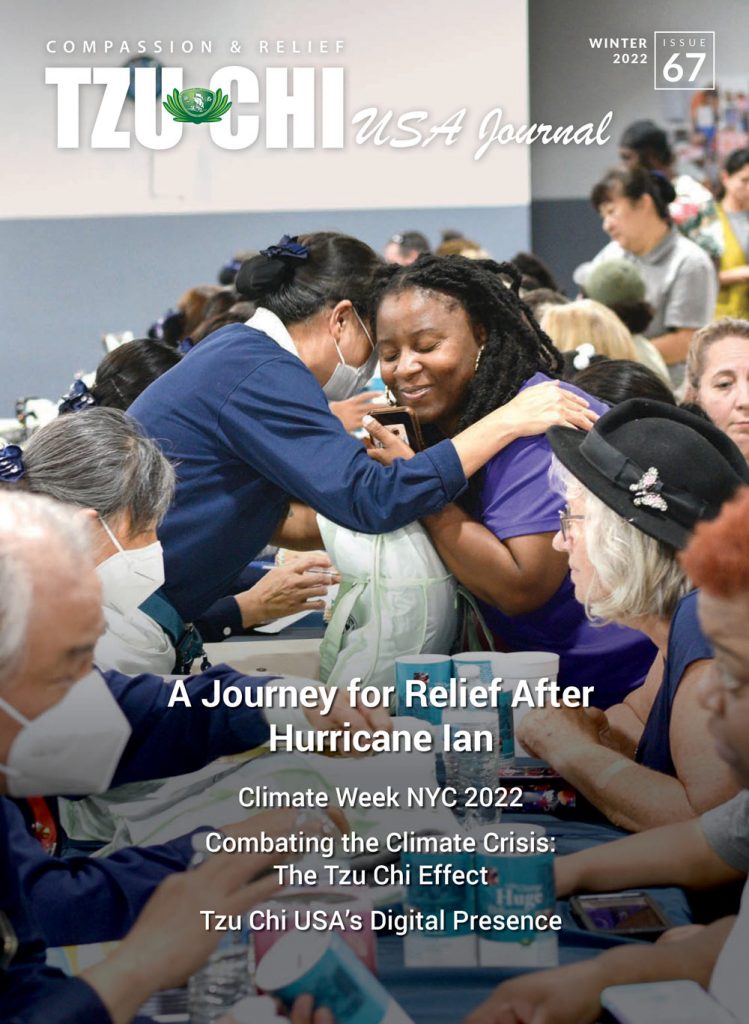CHAPTER 2
Federal Qualification
Written by Audrey Cheng, Jennifer Chien, Lina Lin, and Pheel Wang
Published #71 | Winter 2024 Issue
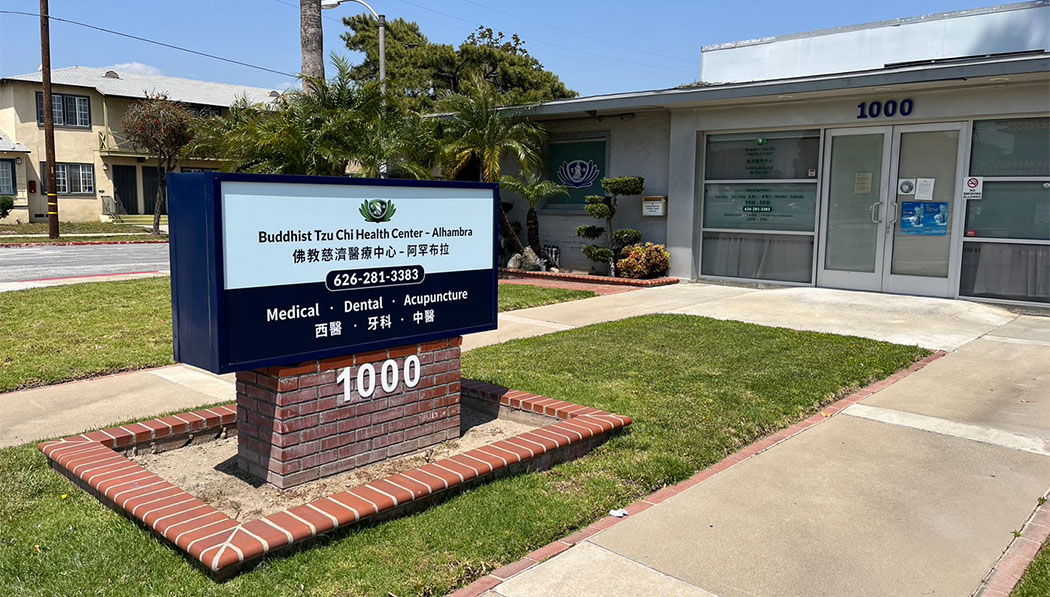
Tzu Chi’s Community Clinics become Federally Qualified Health Center Look-Alikes after attaining certification. Pictured is the Tzu Chi Health Center in Alhambra. Photo/Buddhist Tzu Chi Medical Foundation
SHARE
On October 27, 2020, Dr. William Keh was overwhelmed with excitement and gratitude upon receiving a notice from the federal government. “This was even more joyful than when I was admitted to the Department of Medicine at National Taiwan University [the first choice among Taiwan’s medical schools]. Because this is not for the sake of any individuals, but for the sake of all beings. This is not something that one person can accomplish, it requires the united efforts of all people in a concerted and mindful dash toward a common goal, and to achieve it is not something that one person can accomplish alone.” On October 26, the three Tzu Chi Community Clinics affiliated with the Buddhist Tzu Chi Medical Foundation were officially certified by the federal government as Federally Qualified Health Center (FQHC) Look-Alikes. The Tzu Chi healthcare team had reached a new milestone.
Why the need for a proactive application for federal qualification? Dr. Stephen Denq, the then Chief Medical Officer of the Tzu Chi Medical Foundation and its current CEO, said that FQHC Look-Alike medical centers take responsibility for health care in the area, providing comprehensive and skillful care for the community, and the U.S. population at large. These centers increase access to federal-level, high-standard health care – especially for low-income individuals with barriers to healthcare resources – and are therefore eligible to receive federal grants and coverage for visits. As medications in the U.S. can be costly, qualified medical organizations can request medicines from the federal government at a discounted price.
Dr. Denq explained that once Tzu Chi passed the qualification process, the clinics could accept Medicaid, Medi-Cal/Denti-Cal, and Medicare patients. The clinics can provide them with medical treatment, insurance application or renewal, and other services, expanding the support available to people who are living in poverty. For example, in the past, if the clinic treated a patient with a chronic condition such as hypertension, the doctors would prescribe a three-month supply of medication. However, with the federal qualification, each patient will be recorded and monitored through the federal healthcare system, and clinics will be able to provide more frequent, effective, and diverse diagnostic and treatment programs for patients who have difficulty managing their health conditions. This is all made possible through the federal grants the clinic receives, thus improving the overall health index of the community.
By awarding a healthcare organization with the qualification, the federal government makes it easier for the organization to achieve its goal of sustainable business operations, which helps the federal government take care of the health of the entire community.
Dr. Stephen Denq
Chief Executive Officer
Buddhist Tzu Chi Medical Foundation
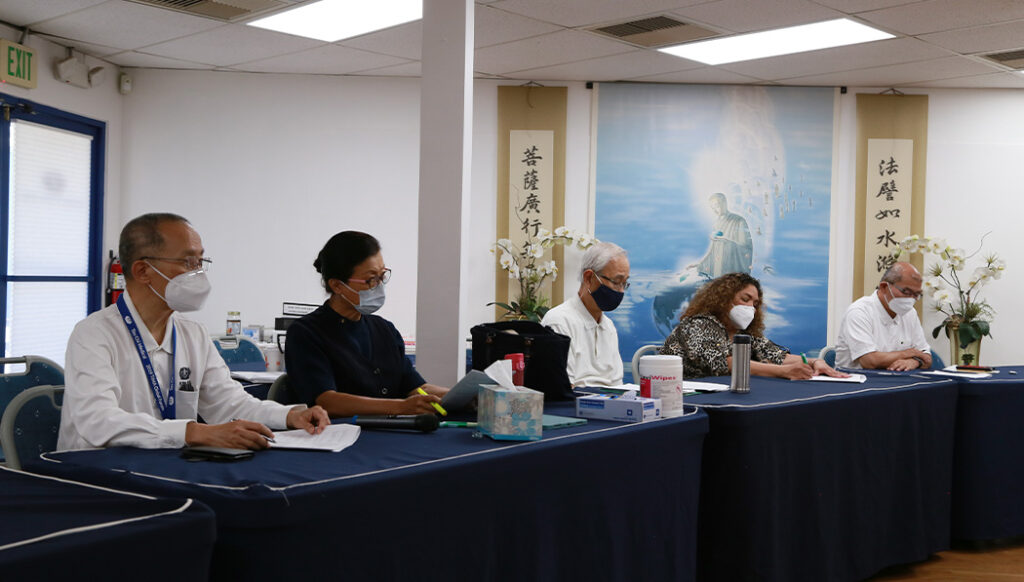
During current Tzu Chi USA CEO Debra Boudreaux’s term as Buddhist Tzu Chi Medical Foundation’s CEO (2012-2014), she recommended that the Foundation apply for federal qualification and move toward that goal by restructuring Community Clinic operations to FQHC specifications and renovating the facilities. After William Keh, Tzu Chi Medical Foundation CEO from 2014 to 2021, took over, the qualification application process officially started in 2017.
The U.S. medical team overcame several difficulties and made many bold changes during the three-and-a-half-year period. First, the federal qualification entails stringent specifications for the composition of a non-profit medical organization’s board of directors. As the whole community needs to be cared for, the board of directors must have seats for patients and members of the community. To strengthen the ethnic and cultural representation of the team, and ensure a diversity of voices are heard in the decision-making process, two Hispanic community members joined the Tzu Chi Medical Foundation as Directors.
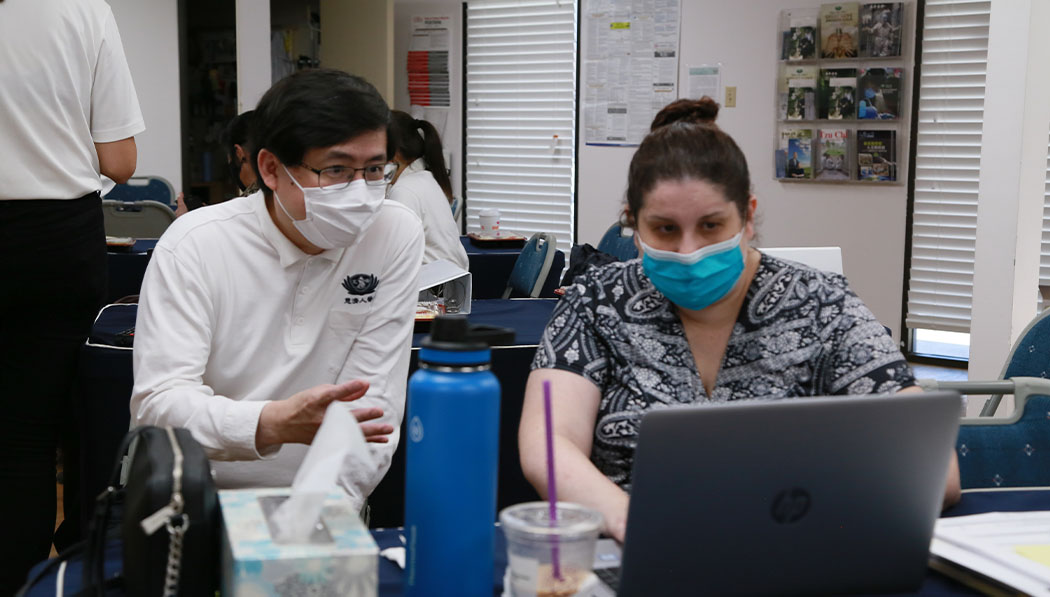
Second, the federal standards for medical record data creation are very strict. The required procedure for detailed documentation of patient information mandates that medical records must be digital, and the Electronic Health Record system needs to be able to integrate with the federal database. Simply put, patients need to fill out more forms to ensure the correct data is properly compiled. This lengthy documentation process may be daunting for patients, requiring the medical team to be well-versed in all matters covered and able to answer patient questions in a clear and concise manner.
Application for federal qualification is a complex process that includes studying the regulations governing the conditions of the individual software and hardware components used in the three community clinics. This review, which must follow a strictly regulated procedure, covers any software or hardware used to survey the population, optimize clinical operations and finances, and compile data for the application submission itself.
Tzu Chi Medical Foundation’s newly reorganized independent board of directors had 12 members. According to the FQHC requirement, the board members must have been functioning in their role for more than one year before the application is eligible to be submitted. The new board held monthly meetings during the two-and-a-half to three-year preparation period. On the board or accompanying it along the way were Dr. Shincung Chen, who focuses on quality and personnel management; Dr. Richard Chang and Dr. Shirley Chen; the late Han Huang, a former Tzu Chi USA CEO; Jackson Chen, also a previous Tzu Chi USA CEO; Paulina Luan, the then Tzu Chi Education Foundation CEO; Tim Chang, Tzu Chi’s legal counsel; Linda Sun, Tzu Chi’s accountant; Martin Kuo and Frank Su, local industrialists; and Raul Villegas Macedo and Rosa Argentina Macias, local community residents. Even Dr. Chinlon Lin, CEO of the Buddhist Tzu Chi Medical Foundation in Taiwan, and Joe Huang, a Tzu Chi member and Buddhist practitioner from the Jing Si Abode in Hualien, joined to ensure the board was able to both meet the government’s mandates and guide the application process to successful completion. Each and every one of these individuals contributed to the FQHC application and assessment and actively participated in this formidable task.
Over the course of three and a half years, the Tzu Chi Medical Foundation constantly conducted self-assessments and implemented improvements to meet the highest standards in the 18 medical categories assessed for the qualification.
The week before the official assessment, board members conducted simulations and intensive meetings, during which the medical team assembled nearly 50 questions to brainstorm with the board members who sat in on the assessment run-through sessions. Everyone involved practiced all aspects of the simulation, preparing every team member for the official assessment.
The official evaluation was conducted remotely due to the COVID-19 pandemic, as it was not possible to conduct the assessment in person at that time. During the three days, the U.S. medical team sent 12 to 15 representatives to participate in the assessment; every minute and every second was approached with the utmost seriousness.
The assessment was divided into three main categories: Clinical practice management, financial operations management, and the board of directors and administrative affairs management practices. One assessment expert and one federal official were assigned to each category, totaling six persons who examined the quality of services provided by Tzu Chi’s medical team. The examination covered many documents, including all operation manuals and records, CPR qualification and first aid knowledge of the medical staff, and the in-service education of medical staff.
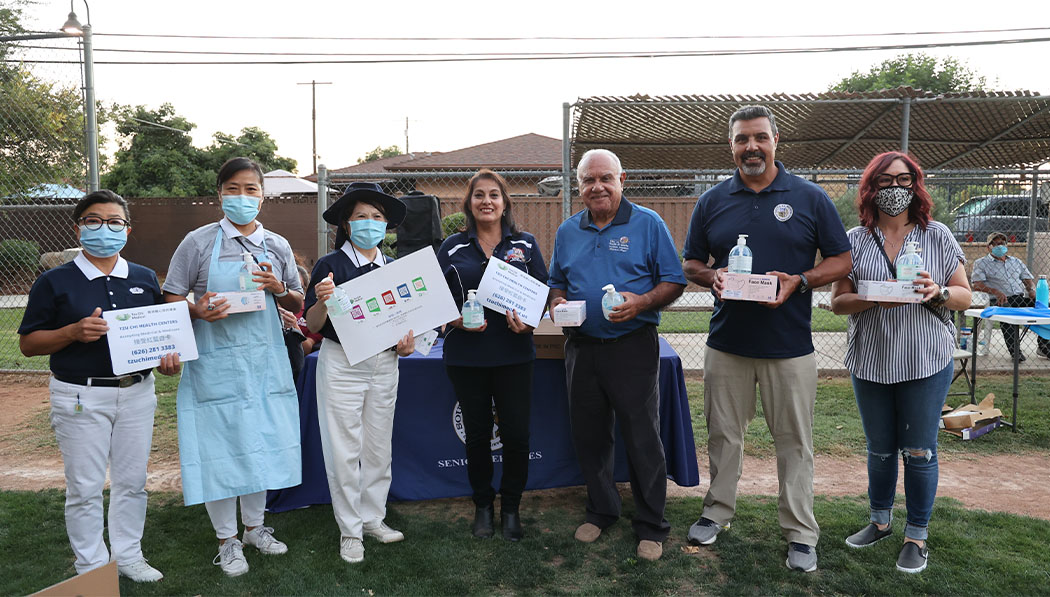
At the end of the evaluation, the assessment experts recognized the Tzu Chi medical team’s efforts, expressing their appreciation in the final comments. At the same time, the evaluation experts advised the Tzu Chi team of any potential areas for improvement. Although the medical team believed that they had a good chance of passing the qualification, everyone was crossing their fingers, waiting for the notice of the qualification results in 45 days.
After years of preparation and hard work by every helping hand, the combined effort all came to fruition on October 26, 2020, when the three Tzu Chi Community Clinics affiliated with the application passed the Department of Health and Human Services qualification process and simultaneously acquired the FQHC Look-Alike designation.
The FQHC qualification only accepts applications from public and non-profit medical organizations. As of the end of 2020, only roughly 1,500 medical organizations in the United States have been awarded the FQHC or FQHC Look-Alike status. The Buddhist Tzu Chi Medical Foundation’s three Health Centers are currently in the Look-Alike category. They must go through a probationary period before qualifying for an upgrade to the FQHC level.
Both FQHCs and FQHC Look-Alikes must be committed to and assume the responsibility of caring for all residents in the community, regardless of a patient’s status and ability to pay for medical services. This “medical treatment for all” philosophy completely aligns with Tzu Chi’s medical mission. Concurrently, all medical services provided by FQHCs and FQHC Look-Alikes must meet federal standards.
In the past, Tzu Chi cared for patients in the region through donations and its own funding efforts. Now that it has received federal support, it can expand and enhance the scale of its services.
Patients with Medicaid
With their new status, Tzu Chi’s three Health Centers must now serve a large number of patients with Medicaid, as serving patients who qualify for this federal program is a FQHC requirement. While this benefits both the medical centers and the patients themselves, as it can often broaden the reach of community clinics and give patients more options, it also comes with some complications.
Medicaid is a program jointly maintained by the U.S. federal and state governments to help people with low incomes, and provide free or low-cost medical insurance to low-income communities. Pregnant women, children, seniors, and people with disabilities may be eligible, and different states have their own eligibility restrictions.
According to Medicaid regulations, people whose annual income does not exceed 138% of the Federal Poverty Level are eligible to apply. At the same time, children aged 18 or below and pregnant women may qualify for further relaxed eligibility requirements.
And yet, these requirements can pose some problems for immigrant communities. Some Chinese immigrants, for example, may arrive in the U.S. with savings, while others are unwilling to be labeled as “low-income” due to perceived cultural stigmas. Many Chinese Americans and Chinese immigrants are reluctant to apply for Medicaid, while some don’t know if they meet the criteria due to language barriers. Intimidated by the dense, complicated Medicaid application forms, many don’t know how best to approach the situation.
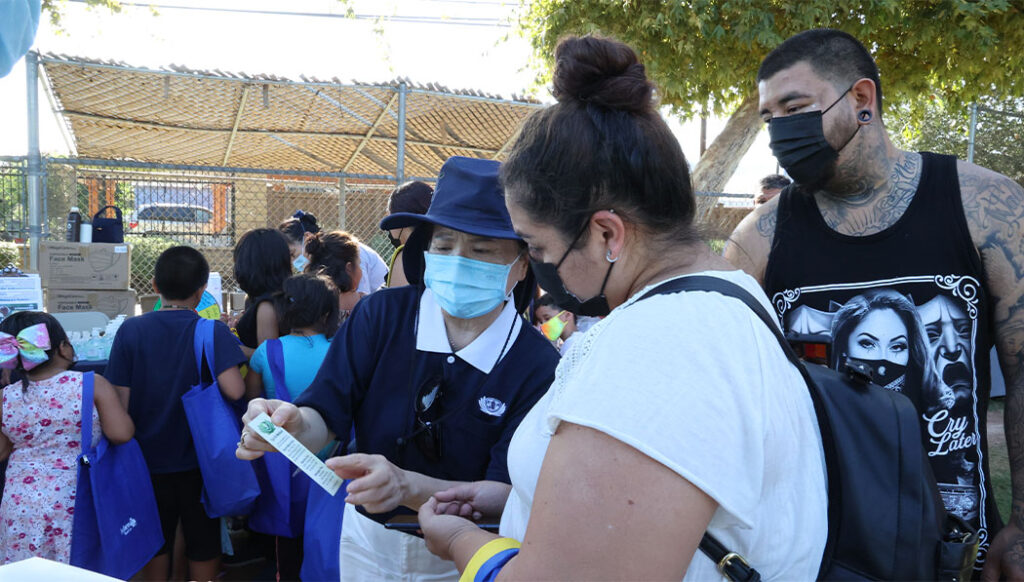
To recruit more Medicaid patients, the Tzu Chi medical team had two important tasks in front of them. One was to reach beyond the Chinese and Chinese-American community and participate in mainstream activities to introduce the Tzu Chi Health Centers to other groups. The second was to assist non-English speaking immigrant community members with the application process for Medicaid. Subsequently, anyone who received Tzu Chi’s assistance and was pleased with the services offered by staff and volunteers could also become a Tzu Chi Health Center patient.
Since there is no specific time limit for Medicaid application, one can apply at any time, and most Medicaid-based insurance takes effect immediately once approved. So, the medical team promoted the program everywhere they could. They hoped to attract Medicaid patients who were searching for a good doctor, and in so doing, provide medical services to more people.
Still, there are hidden concerns. Many believe that if you have Medicaid, you won’t have to worry about seeing the doctor and can see any doctor you wish. According to an American Medical Association report titled “Summary of research: Medicaid physician payment and access to care,” simulation data shows that while 84.7% of privately insured patients were able to secure new patient appointments, Medicaid patients were more likely (69.1%) to be told that their insurance status is the reason they could not secure an appointment. And so, Medicaid patients will continue to face barriers to care.
When Medicaid patients call and inquire about the doctors and clinics listed in a Medicaid user manual or on the official website, they are likely to find that most physicians are no longer accepting Medicaid patients. This presents them with a situation where they do have medical insurance, but may need help finding a doctor willing to treat them. This course of events has led to major concerns among Chinese-American Medicaid patients. A Google search for Chinese-speaking doctors in Southern California’s San Gabriel Valley region shows that 28 out of 30 clinics don’t accept Medicaid. Tzu Chi’s U.S. medical team took heed and encouraged volunteers to do their best to bring these Medicaid patients to Tzu Chi’s Health Centers.
Volunteers made phone calls to nearby medical centers and neighboring cities and introduced Tzu Chi to the city governments. They planned and held numerous community outreach activities. Eventually, their heartfelt enthusiasm made a positive impact, and inspired others to learn more about Tzu Chi.
For example, the Tzu Chi medical team was invited to participate in the City of South El Monte’s National Night Out, an annual community event held in the summer, which features large-scale open-air concerts and movies. In addition to the entertainment, the organizers also spread information about health, safety, and resources available to the community.
The Tzu Chi team had a booth at the event, where the volunteers set up a roulette-style game that offered prizes, hoping to entice people to stop by. The volunteers also prepared small gifts such as masks, hand sanitizers, and lucky charms, and seized the opportunity to introduce Tzu Chi’s Health Centers. Those who stopped by were interested to learn about the range of healthcare services offered there, such as Western medicine, TCM, dentistry, pediatric dentistry, and ophthalmology. The volunteers emphasized that the clinics accept Medicaid patients, and are happy to provide the highest quality medical services to the community.
South El Monte Mayor Gloria Olmos also shared her thanks with Tzu Chi, saying, “Tzu Chi Health Center in South El Monte cares very much about our community. When we set up the Women’s Shelter, the volunteers were involved. Tzu Chi volunteers have always been there to help the community. I would like to thank Tzu Chi Medical for everything they have done. We hope to continue this partnership and cooperation, and we also want to let all residents know that if they need medical care, they can go to Tzu Chi Health Center in South El Monte. We welcome Tzu Chi volunteers to South El Monte, and we look forward to working with each other!”
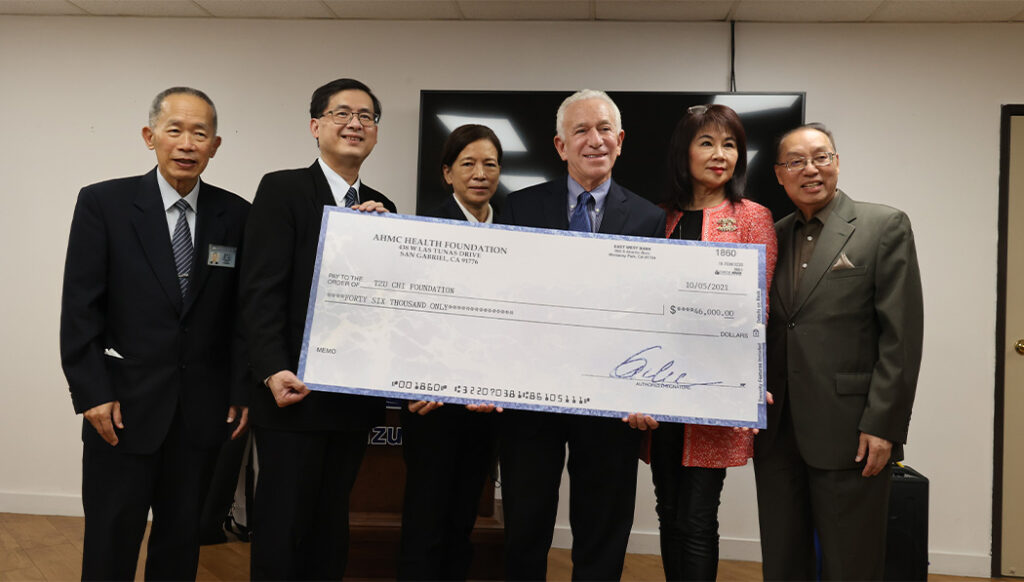
Beyond Milestones
Dr. Stephen Denq became the Tzu Chi Medical Foundation’s youngest-ever CEO on January 31, 2021, when he took the baton from Dr. William Keh. Denq learned that Master Cheng Yen’s expectations were not concerned with the number of patients seen but with how in-depth the services they received were. Being a man of his word, Dr. Denq began with big goals. Firstly, he aimed for an ever-increasing number of medical records, which would signify that more people were aware that affordable care was indeed an option for them. Secondly, he intended for those records to become thicker and thicker, meaning that the patients who came to Tzu Chi were happy with their care and willing to return.
Becoming an FQHC Look-Alike was not the ultimate goal; rather, it’s a phase that enables sound funding sources, so that we can continue to do what Tzu Chi wants to do in terms of charitable medical services.
Dr. Stephen Denq
Chief Executive Officer
Buddhist Tzu Chi Medical Foundation
In 2022, the Tzu Chi Medical Foundation reached its goal of sustainable operation. This is a path built by many predecessors who were able to endure hardship through consideration and meticulous planning. Every step was marching toward rooting Tzu Chi in the local community so sustainable, charitable medical services could be offered to those in need.
“If we can achieve solid sustainable operation, we will be able to do better than before, and we can steadily promote things that we could not do before. For example, we held free clinics often, but there were regrets in the process, such as blood tests. Some patients had been seeing us for more than 20 years, very long-term patients, but we never conducted any blood tests for them. How can we know whether the medication is good and effective? Or is there any side effect? This has been discussed before, but it could not be done in the past. Now we can! The chance is there!” Denq said. He further elaborated, “It’s not just a matter of money; it’s a whole system, including workforce, financial resources, hardware, and software facilities. Now, it’s not just basic blood sugar and cholesterol measurement, but the whole package, matters of direct benefit to the patient. After we obtained the federal qualification, we could do more for these low-income patients, and patients who have good medical insurance. The tests are now exactly the same as in a typical clinic, including liver function, thyroid, gout, and screening tests that we can do in basic examinations. This is a great breakthrough, and it’s great for the patients.” Dr. Denq has taken up the vision of previous CEOs to provide all-encompassing medical services. One example is foot ulcer treatments, which are often a concern for diabetic patients. This necessitated that Tzu Chi have a podiatry department, which further helped develop the Health Centers into multi-department and multi-specialty treatment facilities.
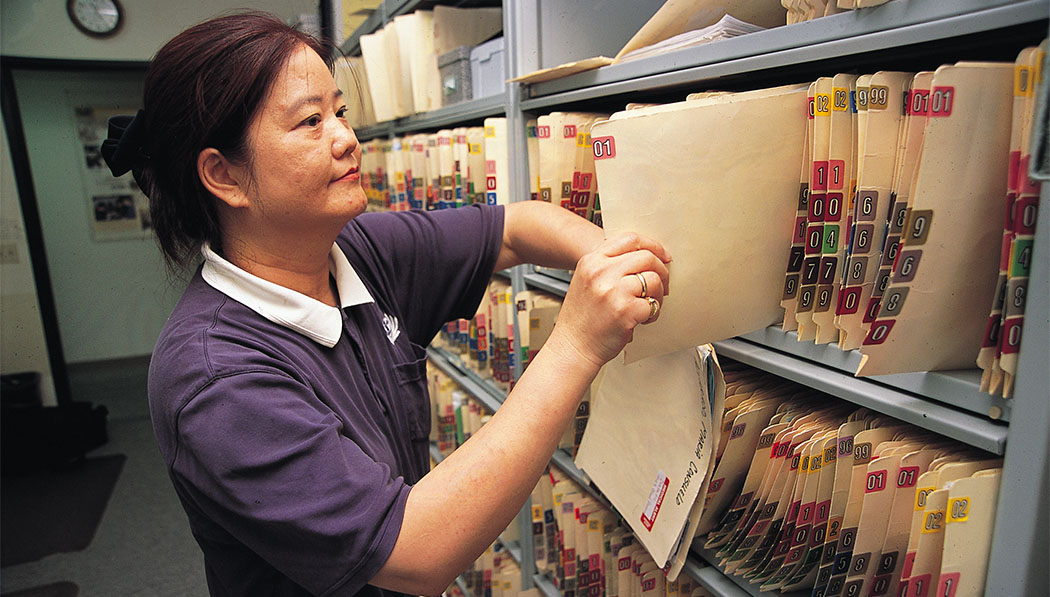
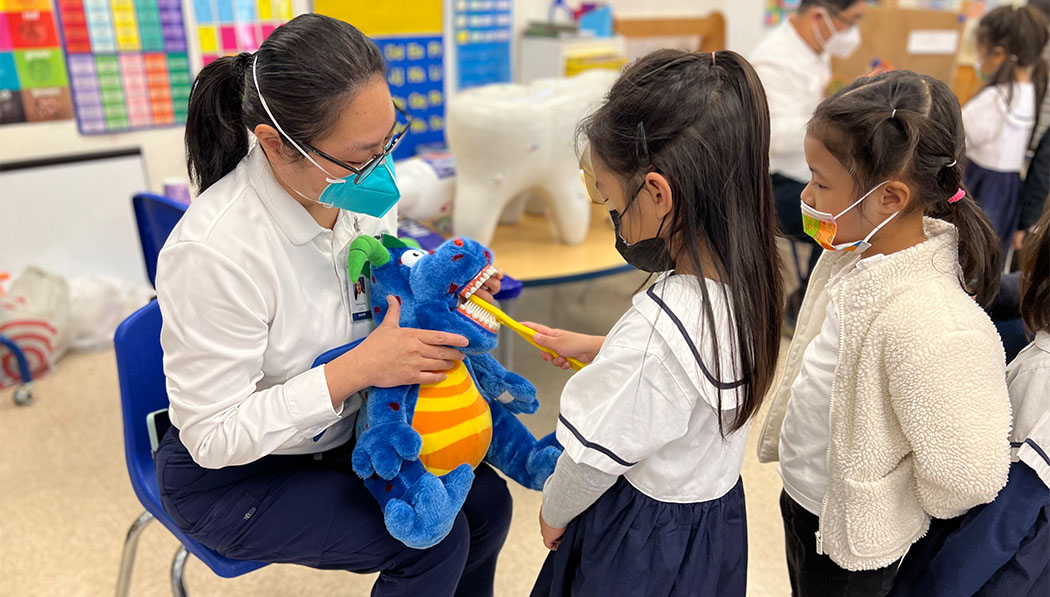
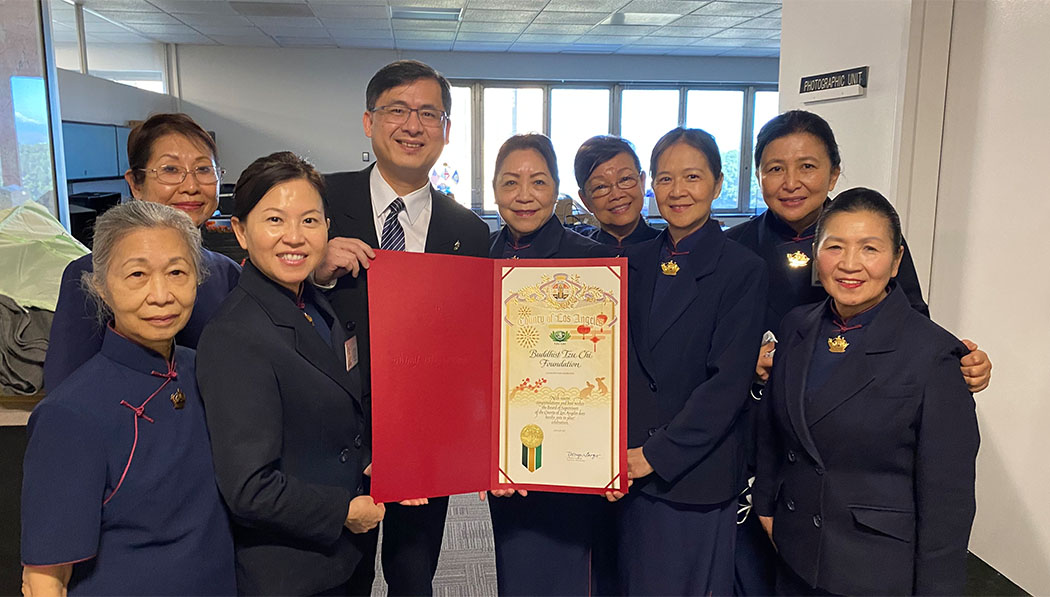
To improve the quality of the Health Centers, the Tzu Chi Medical Foundation has formulated short, medium, and long-term plans. It hopes to enhance the reception volume in the first to the fifth years, as well as recruit more talent to join the team of medical professionals, recruit new colleagues, increase the average daily number of patients in each department, and gradually implement a professional performance appraisal system. The Tzu Chi Medical Foundation plans to break even in three years and expand its current facilities, which may involve purchasing an existing medical building to increase the number of consultation rooms and services offered. The goal is to become a medical “home” where patients can receive friendly, comprehensive, and professional services.
The five to ten-year plan involves setting up medical centers in regions and cities with many Tzu Chi volunteers, such as Northern California, New York, and Houston. The ten-year and beyond plan is to set up a Tzu Chi hospital in San Dimas, California, where Tzu Chi USA National Headquarters is located, to take care of all those in need, regardless of their background or circumstances.
With a professional, enthusiastic team that fully identifies with Tzu Chi’s philosophy, and with everyone doing their part, the Buddhist Tzu Chi Medical Foundation gets to fulfill Master Cheng Yen’s expectation of self-reliance and allowing the people-centered Tzu Chi medical mission to be sustainable in the United States.
